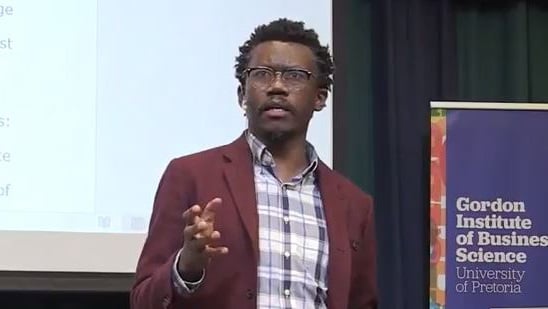
South Africa’s land reform programme has been “an unmitigated disaster”, Advocate Tembeka Ngcukaitobi, author of the acclaimed book The Land Is Ours, has said.
Ngcukaitobi was speaking at a recent Gordon Institute of Business Science forum.
In order to address the hunger for land, the country needs to move to a model of redistribution, rather than restitution, by adopting a flexible model that abandons the fixation with market driven standards.
Professor Ruth Hall of the Institute for Poverty, Land and Agrarian Studies (Plaas) argued that the failure of land reform was not due to Section 25 of the Constitution, but rather to lack of political leadership and of clear policy, as well as mismanagement and corruption.
“The current pace of land reform is politically untenable. The state must begin to think more creatively,” she said.
Expediting land reform
Ngcukaitobi explained that the Constitution is a framework to facilitate socioeconomic transformation. Section 25 is in fact an anti-property clause, he said, as it allows the state to interfere in property matters, thereby correcting the wrongs of the past.
However, land reform was constrained as expropriation was only allowed for public purpose and in the public interest, and had followed the market principle of willing buyer, willing seller.
“I am now convinced that it is impossible to embark on an effective land reform programme if we fixate on a market driven standard. It is clear that the market will simply never deliver land reform at all,” Ngcukaitobi said.
No emerging market nation had achieved land reform based on the market system, he argued.
Instead, a flexible model would be more suitable, as this would offer a spectrum of compensation ranging from expropriation without compensation, to compensation according to the just and equitable payment principle of Section 25.
Land reform had been “bedevilled by corruption from within”, because as land owners, claimants and government bureaucrats were all within the net of corruption. The institutions of land reform are “weak, corrupt and collapsed,” he said, and should be placed at the centre of the economy, rather than outside of the economic cluster.
Ngcukaitobi said land reform should be an administrative, rather than a judicial process, with the courts only needed for review of decisions.
By focusing on restitution rather than redistribution the state had created a slow and onerous process, Hall said.
The burden of proving redistribution is simply too high: “The whole point of land reform is the redistribution of land. Restitution costs more money and time and requires more bureaucrats to prove dispossession,” she said.
Hall argued that land reform was undervalued as a project by government.
“We need to revitalise our institutions and rethink how they are configured.”
The history of dispossession
Hall explained that the Native Land Act of 1913 didn’t initiate dispossession, but rather merely formalised the forced removals which were already taking place.
“People lost not only the land, but also other assets, like cattle and other livestock, which they were forced to sell or abandon. Because of losing their right to land, they also lost the capacity to negotiate the terms on which they would sell their labour. We must always think about land and labour as being entwined,” Hall said.
The long-term impact of the process of dispossession is not easily undone, she explained.
While the land still existed, and could be returned to people, “these are multigenerational processes of dispossession that have impacted on people’s access to education and their acquisition of assets. When we talk about land, we have to talk about the intergenerational transfer of poverty and the intergenerational transfer of privilege.”
Ngcukaitobi said it was necessary to understand the history of dispossession in order to grapple with today’s land question: “The question of land is expansive. It is a larger cultural question as land is the springboard for the total emancipation of the South African black population.”
The denialism of black pain and black dispossession meant that we are in a sense still living in a construct of colonialism.
“We are living as imagined by Europe, where access to property is still largely determined by race.”
He said that while the laws have changed, the rigid socioeconomic environment meant it is difficult to access the necessities of the open market. “Institutional barriers remain strong and we first have to enable access to land and access to credit. There are a number of necessary institutional reforms that fall outside of the state, which need to take place.”
Land Bank chief executive Tshokolo Petrus Nchocho said land is key to building wealth and that dispossession had disrupted knowledge transfer and resulted in capital erosion and isolation.
A key barrier for emerging farmers was access to markets, which had been liberalised and was heavily laden against new participants.
“We need an institutional environment that works. The institutions that are supposed to support land reform are in a state of dysfunction,” Nchocho said.
He appealed for an acknowledgement and acceptance of the current situation, and called on established commercial farmers to “make a substantial and meaningful contribution to reform” in order to choose the path of peaceful evolution, rather than violent revolution.
“The Constitution is not the problem, nor is it the reason for the slow pace of reform,” Hall said in conclusion.
“We need a clear policy and political leadership. These are solvable problems.”
• City Press is a media partner of the Gordon Institute of Business Science forums




 Publications
Publications
 Partners
Partners








